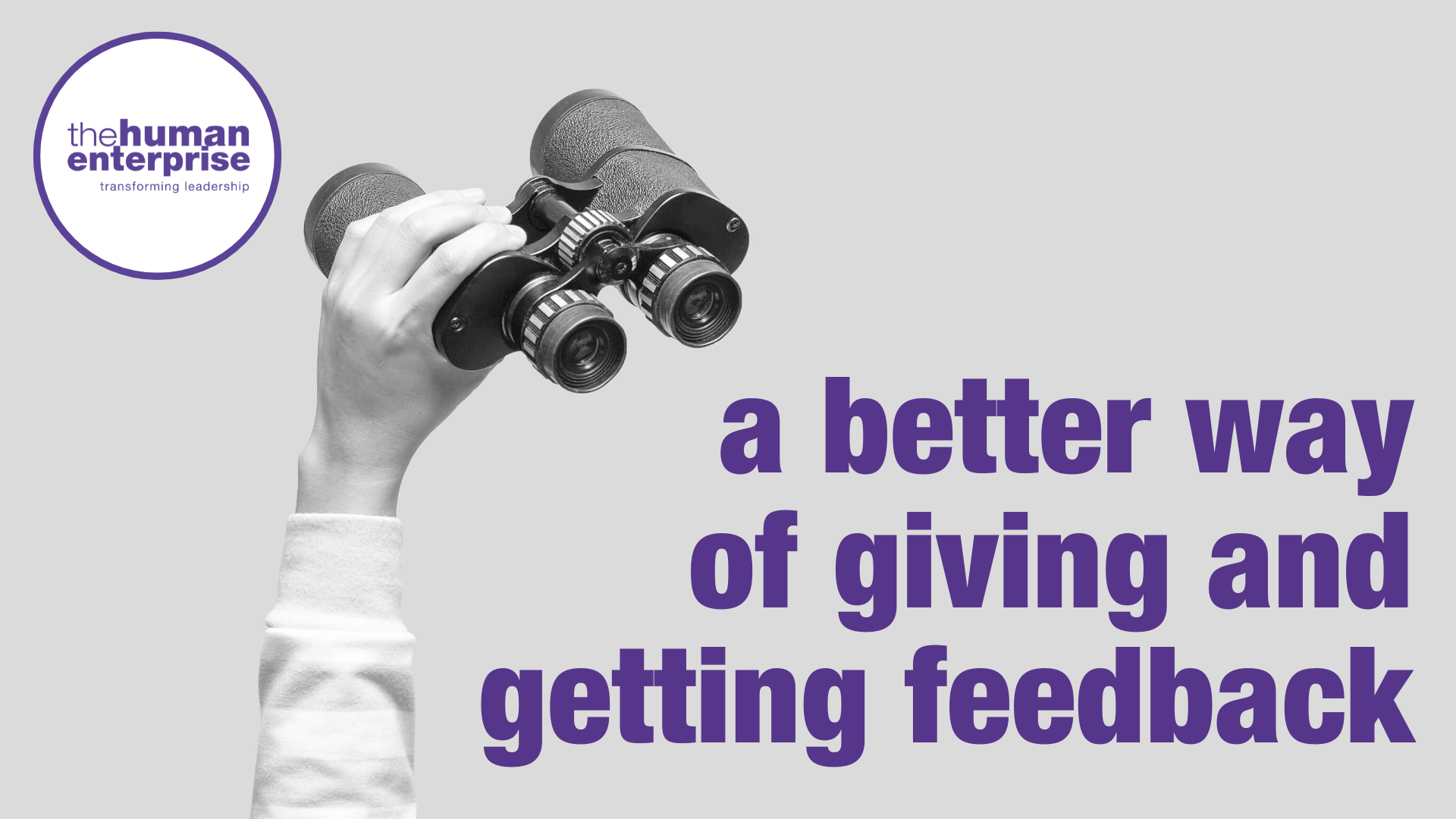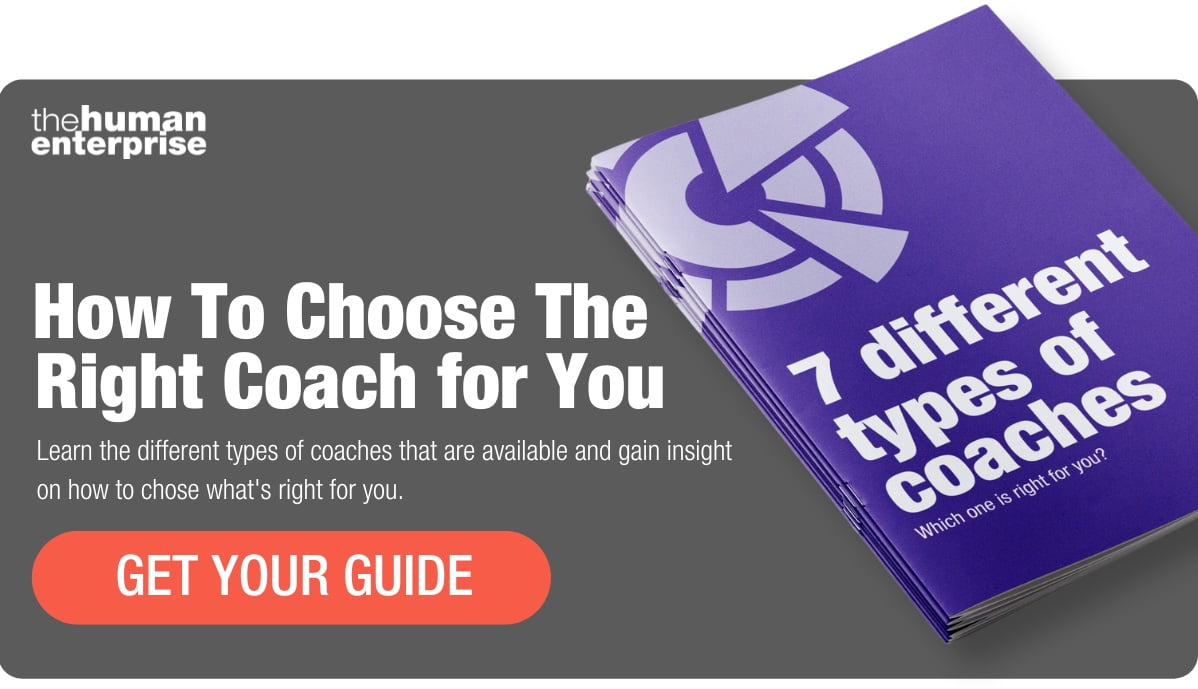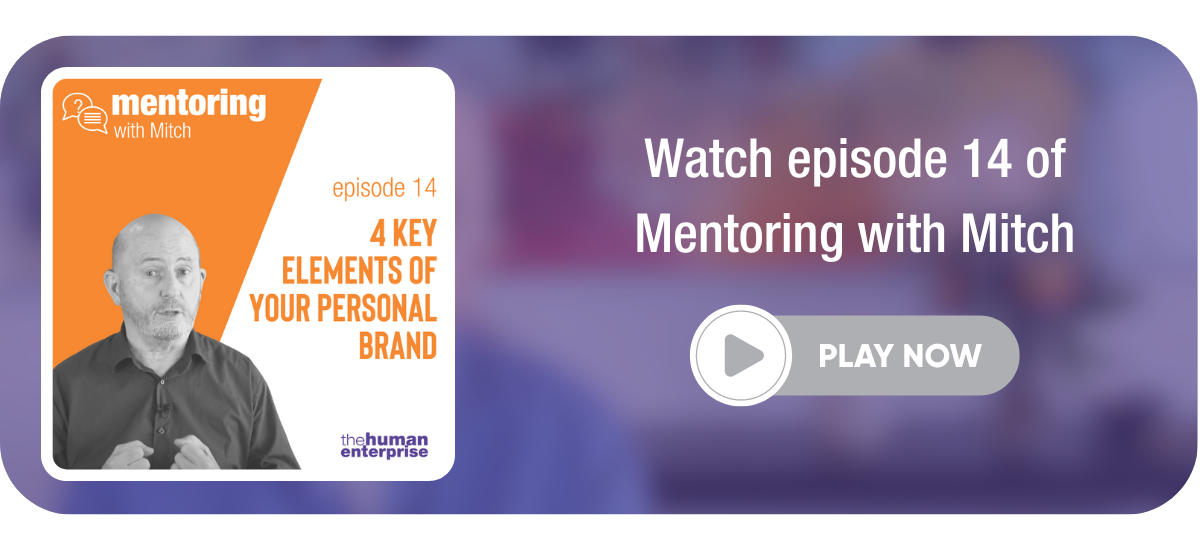
One of the key aspects of our Transformational Leadership Coaching at the human enterprise is the three-way sponsor discussion between the leader, their sponsor (manager) and the coach.
Even though the leader and their manager may have been having regular chats, I find that some additional vital feedback always emerges. Stronger connections are always made. Often the air is cleared on a particular issue, or the relationships of trust, of nurturing each other, of respect, goes to a whole new level.
I’ve always found these interviews to be really worthwhile. Not only do they give the coaching a more strategic focus, they also help shore up sponsorship and further enhance the relationship.
HOWEVER…
I think I could do feedback differently and so could you.
Questions for Sponsors
At the human enterprise, we ask the sponsor a series of questions about the leader being coached. Standard questions like…
- What do you see as this leader’s strengths?
- What do you see as this leader’s key areas of development?
You know the drill.
And then deeper questions such as:
- What does this leader do that can unconsciously, at times, sabotage their success?
- What does this leader need to do to better hone their personal brand and gravitas?
Now, don’t get me wrong, these are great questions, and they bring up some important information, patterns, and trends. And as patterns emerge, I sensitively (hopefully) ask the leader and sponsor to both step back AND step forward, getting them to focus on what needs to be done, for example, to:
- Build on strengths
- Address development areas
Feedforward
Marshall Goldsmith calls this “feedforward”. I love this term as we already get so much “feedback”.
Feedforward is ideas, strategies, and actions we can use in the future. It’s solution, not problem focussed.
What brought this on?
I read a Harvard Business Review article on giving feedback which got me thinking about how wrong I’d gotten it. The article spoke about the difference between…
WINDOW GAZING
And
MIRROR HOLDING
WINDOW GAZING is when you, as the manager, look out the window and describe the leader’s behaviour and performance from an external perspective. YOU GIVE THE FEEDBACK.
MIRROR HOLDING is when you hold up a mirror for the leader and get them to reflect on their own behaviour. THEY GIVE THE FEEDBACK ON THEMSELVES.
The MIRROR HOLDING questions substitutes for the earlier questions would be:
- What do you see as your strengths?
- What do you see as your key areas of development?
- What do you believe you may unconsciously do that can, at times, sabotage your success?
- What do you have to do to better hone your personal brand and gravitas?
Yes, it’s a subtle shift, but a vital one. The leader being coached is now taking more responsibility for the feedback and feedforward.
But there’s also another way to ask questions
What if we went one step further? What if there was a way to get the leader to reflect on how others view their behaviour?
“You never really understand a person until you consider things from his point of view… until you climb into his skin and walk around in it”.
Atticus Finch from To Kill a Mockingbird
We call this BINOCULAR GIVING. You’re handing them the binoculars so they can see much further and in more detail. Observing their own behaviour from a distance as they imagine it through the eyes of those around them and in doing so opening the door to another universe of feedback and feedforward. It’s sometimes called “position shifting” or “perceptual positions” in Neuro-linguistic programming (NLP).
So, now the 4 questions become….
- What do you believe others see as your strengths? (And what would they say about how to play to them?)
- What do you think others see as your key areas for development? (And what would they say about how to bridge the gap).
- What might others say about how you could unconsciously sabotage your success? (And how would they say to address it?)
- What would others say about your personal brand and gravitas? (And how would they say to enhance them further?)
Use it Anytime
And you don’t have to wait until a sponsor interview to start BINOCULAR GIVING. Keep asking your people, not only “how they are doing”, but “how they think other people think they are doing.”
There’s a saying “What other people think of me is none of my business”.
That may be true if we’re talking about self-esteem or more personal judgements, but it doesn’t hold water if you are a leader. So, don’t just give the binoculars to your people. Give them to yourself as well.
Sure, you don’t have to react to every perceived opinion or judgement AND you do have to be aware of how you are coming across. How else will you ever know if you are exciting people to exceptional performance?
Looking for a Coach?
Do you want to explore how coaching can impact your effectiveness, joy and peace of mind as a leader in all aspects of your life? It can be hard to know where to start. In fact, with an abundance of choices, finding the right coach can be a confusing experience.
Read this guide to get an understanding of the different types of coaches that are available and learn how to choose what’s right for you – 7 Different Types of Coaches: Which one is right for you?
Until Next time…
Find the passion.
Develop the skills.
Make the numbers.
Make a difference.

Paul Mitchell
Paul Mitchell (@Paul_S_Mitchell) is a speaker, author, transformational leadership coach and founder of the human enterprise. Through leadership coaching, leadership development programmes, keynotes and facilitation, Paul works with organisations to build cultures where everybody leads.

